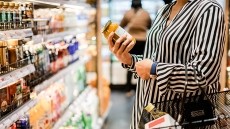EU extends PCB list?
alerted the world to levels of cancer-causing toxins present in
farmed salmon, Europe's head of consumer safety stressed to
politicians that Europe's food chain is safe. But EFSA assessment
and tighter legislation still on the way to integrate more PCBs
into the law.
The study published last month in Science sparked concerns among consumer and government alike concerned about the levels of 14 organochlorine contaminants ?long prohibited in the EU - in samples of farmed and wild salmon.
'I would remind you that worldwide, only the European Union and Korea have adopted maximum levels for dioxins in feed and food,?/i> David Byrne, European Commissioner for Health and Consumer Protection told Members of the European Parliament.
Raising the alarm, the Canadian researchers found that carcinogens PCBs (polychlorinated biphenyls) and other environmental toxins are present at higher levels in farm-raised salmon than in their wild counterparts. The UK TDI (Tolerable Daily Intake) for dioxins and dioxin-like PCBs is 2 pg WHO-TEQ/kg bodyweight/day.
But this week Byrne told MEPs that the Commission is preparing to expand current legislation. 'The legislation foresees that, as early as this year, the maximum levels have to be revised to integrate some PCBs with toxicological effects similar to dioxins.
Furthermore it is foreseen that by the end of 2006 the maximum levels will be revised, aiming for a significant reduction.?/i>
According to Byrne, for the other PCBs, the European Food Safety Authority (EFSA) is currently undertaking a risk assessment, the result of which is due by the end of 2004. The Commission will then also consider setting maximum levels for these PCBs in feed and food.
The organochlorine pesticides detected in the study published in Science have, since long ago, been banned in the European Union.
'However their continued presence in fish is due to the fact that they are very persistent compounds which can still be found in the environment,?/i> said the Commissioner.
On the basis of updated risk assessments undertaken by EFSA, the Commission will consider whether a revision of the current levels is necessary for the protection of animal and human health,?/i> concluded Byrne.
Quick to respond to the study in January, Sir John Krebs, chairman of the UK government's independent food watchdog ?the Food Standards Agency ?also stressed that the levels found were safe.
'This study shows that the levels of dioxins and PCBs in salmon are within internationally recognised safety limits and confirms previous studies by the FSA,?/i> he said in a statement. They are in line with safety levels set by the World Health Organisation and the European Commission, added the chairman.
But others disagreed. "The FSA should be trying to encourage British farmed salmon to be as healthy as possible. They should recognise this point, rather than accept the status quo," Mary Taylor, a spokesperson for the environmental campaigners Friends of the Earth told FoodNavigator.com at the time.
The group is calling for stricter controls and an improved food labelling regime for fish. Their call echoes the study's authors who note that findings demonstrate the importance of labelling salmon as farmed and identifying the country of origin.
The Scottish salmon farming industry ?that produced 127,000 tonnes in 1999 and contributed ?50 million to Scottish food exports in 1999 ?represents nearly 40 per cent of total Scottish food exports.
According to figures from FAO Fisheries Department Review, consumer demand for salmon in the UK alone has nearly trebled between 1992 and 1999 with consumption rising by around 185 per cent - from 31,000 to 88,500 tonnes. Worldwide demand for fish is estimated to increase by at least an extra 30 million tonnes by 2010.



























